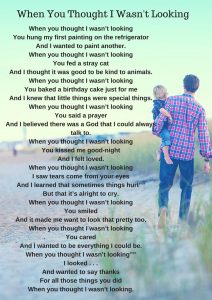This post is part of a series inspired by the #IMMOOC book study of Katie Martin’s book, Learner-Centered Innovation.
Most people in education remember that Lev Vygotsky was the Soviet psychologist who developed the concept of the Zone of Proximal Development (ZPD). ZPD is the sweet spot of learning between what the learner can do without help and what he or she cannot do, as illustrated in this diagram:

from “Innovative Learning”
http://www.innovativelearning.com/educational_psychology/development/zone-of-proximal-development.html
We often talk about ZPD in terms of students, and keep it in mind when developing activities and providing scaffolding. It’s important to remember, however, that we all have a ZPD, and we need to be cognizant of that when seeking professional development opportunities.
Sometimes I read an idea or watch a video of something that is happening in another classroom, and I feel completely overwhelmed. Where once I would have beaten myself up about being behind in an area of pedagogy or innovation, I now try to remind myself that the concept or skill is probably currently out of my ZPD. I set myself incremental goals of how I’ll grow towards that new skill or understanding, and I’ve never failed to see growth. As Katie Martin says in Learner-Centered Innovation, “supporting individuals requires moving away from the notion that we all need to (or even can) learn the same things at the same time.”
It’s important to remember that Vygotsky wasn’t only talking about students, he was thinking of learners at all ages and stages. If we can recognize our ZPD and incrementally work toward a learning goal, we will always see growth.


